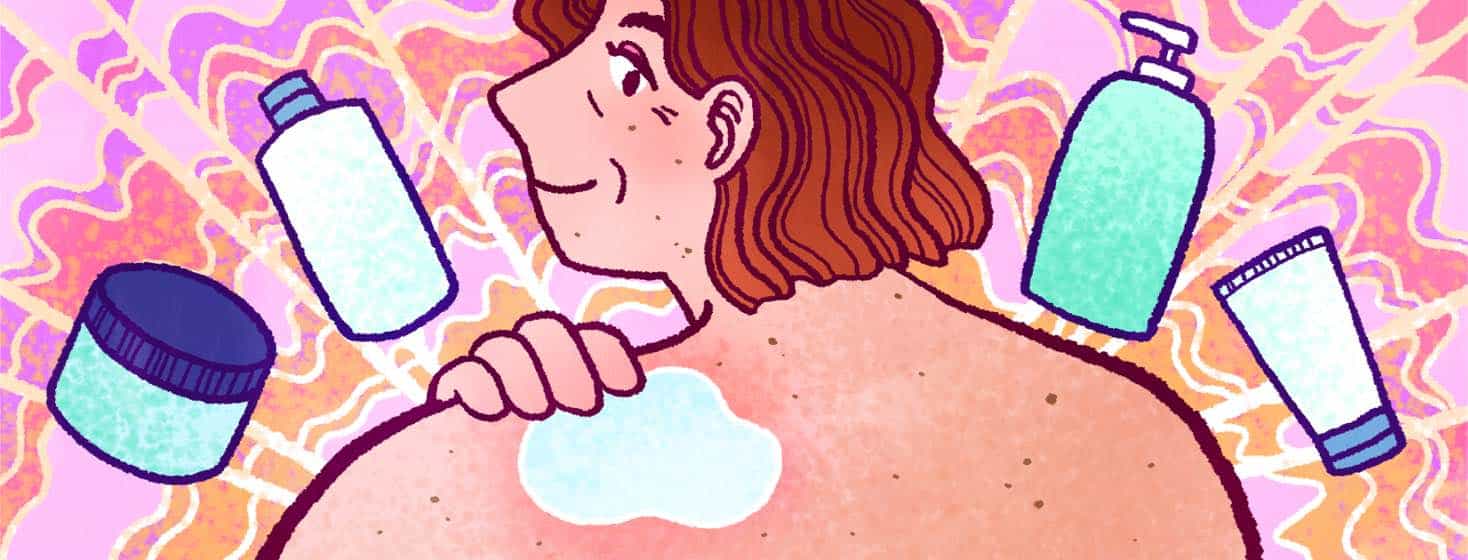Post-Superficial Radiation Therapy
“Congratulations! It's your final superficial radiation treatment!”...now what?
Let's start with after care
Care for your skin, it’s delicate! After radiation therapy, the effects of the radiation do not immediately disappear from your skin, and, in fact, the radiation continues to have effects on your body for weeks to months. The side effects you experience in the weeks after treatment are typically mild, including erythema (skin redness), dryness, tenderness, or itchiness in the treated area.
So what should I do after radiation therapy?
I recommend using gentle cleansers, applying vaseline or Aquaphor often, and, of course, a lot of sunscreen. It is especially important to protect your skin during this time, as your cells are regenerating and healing from the treatment.
You'll need a follow-up exam
You will follow up with your dermatologist about four weeks after your last treatment. At this point, most of your side effects will have diminished, if not be completely gone. The radiation has done its job and there should be no evidence of any remaining skin cancer. How can you be sure? That's where the follow-up exam comes in.
How do I know that the radiation worked?
A carefully prescribed dose, based on clinical trials and years of research was used to determine the amount of radiation you needed to eliminate the type of skin cancer you had. Your dermatologist will not re-biopsy the site (unless you absolutely insist) because it isn’t necessary. The skin will be monitored as you come back for future skin examinations.
What are the long term side effects of radiation therapy?
Sometimes, after radiation, your skin may not look exactly like it used to. Of course, there will no longer be skin cancer in that area, but sometimes the color or texture can vary. If you have redness to your skin, you may notice that the area is now less red. This is due to the shrinking of the blood vessels in the treatment area. You may notice a slight depression in the area, due to the atrophy of fat cells. These cosmetic differences can be treated with lasers and injectables if you wish.
How do I prevent future skin cancer?
You have had a skin cancer, which makes your chances of additional skin cancers greater. A logical thought may be to get rid of the damage before it can progress into a skin cancer. Now how is that done?
Sunscreen is a must
Wearing sunscreen is so important. Our dermatologist, who is a member of the American Academy of Dermatology Association, always goes by their guidelines. A broad spectrum with an SPF of at least 30 applied generously and often. We also highly recommend hats with large brims and clothing that protects from the sun.
Other forms of treatment include:
Photodynamic therapy
PDT is a great tool for treating precancerous lesions. A chemical called Levulan is put on the skin and absorbed by damaged skin cells. After an incubation period, the chemical is activated by light. The light destroys the damaged cells which will slough off over the next several days. The treatment is effective but not always enjoyable. After the chemical is activated the skin is sensitive to the sun for 48 hours. This treatment is covered by most insurances as a preventative treatment for skin cancers.
Efudex
A topical cream is put over the skin and destroys damaged skin cells. Unlike PDT, this treatment happens over the course of weeks. The damaged cells come to the surface and are eliminated. This typically involves weekly visits to your dermatology office to monitor your skin’s reaction to the treatment.

Join the conversation